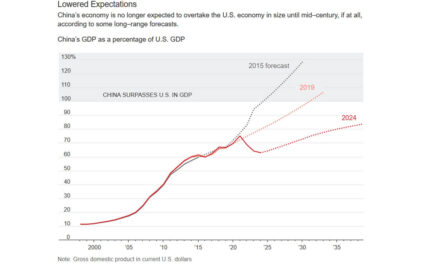
Trump Campaign Promise: Curtail Legal Immigration
As the public debate over illegal immigration continues, President Trump is making headway on another campaign priority: reducing legal immigration.
According to State Department data analyzed by The Washington Post, the number of people to move into the United States legally is expected to decrease 12% during Trump’s first two years in office.
Legal immigration from the five countries affected by Trump’s travel ban (Syria, Yemen, Libya, Somalia, and Iran) is expected to drop more than 80% by the end of September, while legal immigration from all Muslim-majority countries is expected to drop by a third. The number of visas issued to Africans is expected to fall 15%.
Legal immigration from countries that typically receive the largest number of visas is also on the decline. This list includes countries like Mexico, China, India, the Dominican Republic, Haiti, Pakistan, Jamaica, Afghanistan, and Vietnam.
Immigration from Europe has increased, but is still a trickle compared to the number of visas issued to immigrants coming from Asia, Africa, and Latin America.
Immigration from El Salvador, which is among the 10 countries that typically send the most immigrants to the US, is expected to increase 17% during 2017 and 2018.
The State Department has refused to publish visa application data, which makes it unclear whether the drop in immigration is partly due to a declining interest in moving to the US.
Either way, these numbers are a sharp contrast to the last two years of Obama’s presidency, when legal immigration jumped 33%.
During his presidential campaign, Trump criticized the ‘dangerous and unchecked’ rate of legal immigration under Obama and called for a “total and complete shutdown of Muslims entering the United States.”
His stance on immigration likely played a key role in his victory over Hillary, as more than 60% of voters who cited “immigration” as the biggest problem facing the country voted for Trump.
Trump, who once said he wanted to keep people out if they don’t share “our values,” issued a controversial travel ban on Muslim countries during his first week in office. The ban was immediately blocked by the courts, but a third iteration of the policy was upheld last week by the Supreme Court.
Trump insists his immigration policies are driven by national security concerns and an effort to reduce competition for American jobs. Opponents say the policies are discriminatory against Muslims and non-Whites.
As some experts have pointed out, reducing legal immigration at a time of historically low unemployment doesn’t make sense.
“Some American businesses are clamoring for workers, and the slowing of legal immigration could further strain a job market in which a record 6.6 million positions are unfilled,” notes The Washington Post.
Trump wants to fill those positions with American workers.
And while Congress has thrice failed to pass Administration-backed bills to limit legal immigration, Trump has managed to reduce the flow by introducing regulations and administrative guidelines to change the way visa applications are processed.
“If you’re empowering people to spend more time vetting an application, and you’re not having a culture of getting to ‘yes’ but having a culture of ‘make the right decision,’ it’s axiomatic that you will not be able to process applications for immigration benefits at the same speed,” said a national security official who asked to remain anonymous.
Earlier this year, State Department rules were changed such that visa applicants can be denied if consular officials believe that person might end up becoming “a public charge.”
Such changes are designed to “put more rigor into the visa issuance process,” explains Doris Meissner, a former commissioner with the US Immigration and Naturalization Service. “By almost definition, that’s going to likely result in more denials.”
The largest decline in visa approval is occurring with family-based applications that allow US citizens to sponsor the immigration of relatives (AKA “chain migration”). There has also been a significant reduction in the number of visas formerly reserved for Afghans and Iraqis who helped the US in war zones.
























Joe Gilbertson: where are you going with these threats? My free speech is facing intimidation, sometimes physical threats. Is this…
NOT BUSTED. You didn't have to say it. That is what I meant in the above post from me. But…
Just another ruse for taking jabs at Biden through alleged short comings of his. Ten days remaining in Biden's term…
I never said I WANT China to continue to own Panama. You made that up. First,I didn’t say it. Second.…
I absolutely do Not in any way, shape or manner fabricate ANYTHING you say. I do and will always tell…